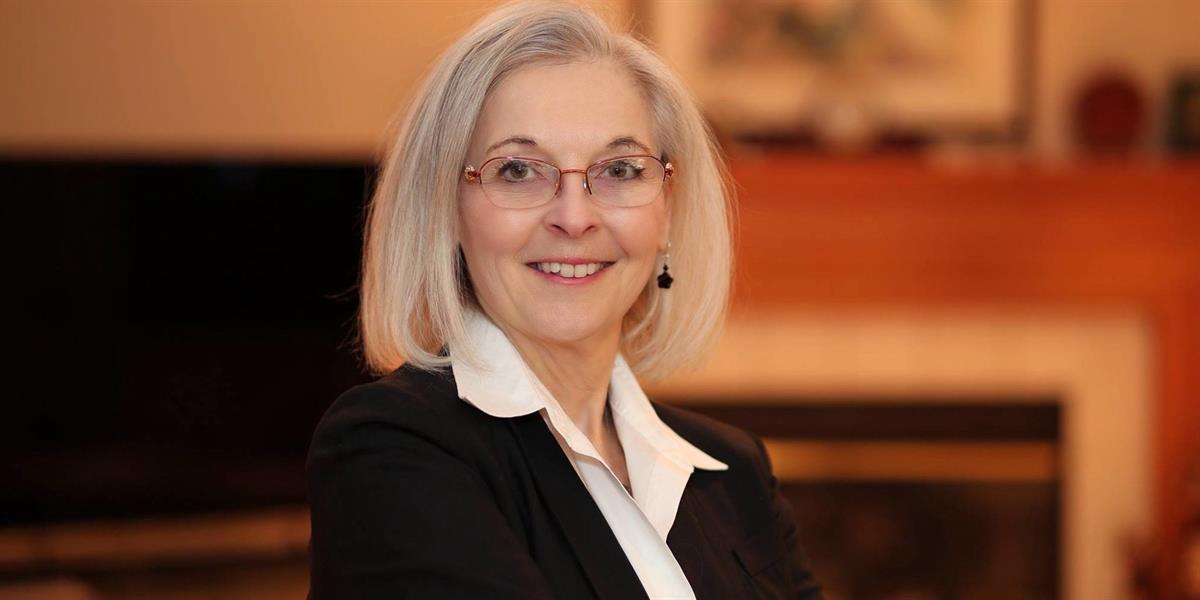Meet Kathie Allen, The Doctor Aiming For Jason Chaffetz’s Seat In Congress

By Kaz Weida
This isn’t the first time Kathryn Allen, known by her friends as Kathie, has had to take matters into her own hands. The first time was when she was sixteen years old. Her father, also a physician, had succumbed to addiction after a stressful schedule and Kathie recognized that she needed to step up.
“When I was 16, I took my younger sister and our family car and ran away from home to a town about 80 miles away. I did not want to embarrass my father in his own community, but I wanted him to get help for his problem. We stopped at a pay phone and I looked in the yellow pages for a minister. We found one willing to listen, and he came and got us and took us to his home. Late that night, he called my parents to assure them that we were safe.”
Kathie would demonstrate this kind of pragmatic concern again and again in her career as a physician. She earned a BA in psychology from the University of Redlands in 1975, and then worked for Congresswoman Shirley Pettis in her district office, in San Bernardino, CA. She held this position for 3 years and learned a great deal about the federal government. Kathie also worked in a county housing program for two years while she prepared for medical school. Her job took her out into the desert near 29 Palms, where she witnessed many senior citizens living in poverty, struggling to make ends meet under mounting health problems. After finishing her training as a physician at Loma Linda University School of Medicine, Kathie moved to Utah to complete her residency in 1987. She decided to open her own practice in the Salt Lake Valley and spent several satisfying years raising a family and caring for her patients.

But healthcare was becoming increasingly corporatized and eventually, it became too hard to make ends meet. Kathie made the difficult decision to give up her business to a medical conglomerate.
“I sold my privately owned practice to a large corporation with the intention of continuing to work for them for 5 years. I only lasted 3. The moral dilemma of choosing whether to do what I thought was right for my patients kept bumping up against the organization’s desires that I make decisions that would enhance their bottom line.”
Kathie chose the high road and hasn’t looked back, insisting she’s much happier in her work at a private clinic, run by the Utah Transit Authority for their employees and families. And while she’s been involved in various leadership and activism roles within the Utah Medical Association, including becoming the Salt Lake County Medical Society President and being awarded for her activism during her tenure with the Utah Medical Association, Kathie’s interest in politics was mostly from the sidelines. The 2016 election changed that.
“Unlike a lot of my friends, I did not weep with the ascendency of Donald Trump. I reacted with anger and outrage, and internalized grief. I began to wonder how I could make a difference and became active in several Facebook groups.”
Kathie took a look around at Utah’s unequal representation and did what any good doctor does. She diagnosed the problem as one of extreme gerrymandering and set about finding a cure. Kathie established The Fair Redistricting Caucus of Utah, which now has 1,300 members, and is currently participating on a legal team to challenge district lines drawn after the 2010 census.

“I learned that the Tea Party had carefully devised a plan after the election of Barack Obama to gain control of local governments so that they could draw electoral boundaries, as most states grant this privilege to state legislatures. Gerrymandering became the first issue I really wanted to tackle.”
How did she end up running for office? Well, we have a certain congressional representative to thank for that: Mr. Jason Chaffetz. Kathie was at his infamous town hall, and her commitment to oppose the Congressman was galvanized by what she saw there. As the crowd of constituents was taunted by their own representative and struggled to have their voices heard, Kathie says it all came together.
Cong Chaffetz Town Hall crowd chanting “Do your job!” He’s having a hard time answering over crowd noise @UtahIndivisible @IndivisibleTeam https://t.co/gO0BXybGy5
“I began to feel a strong sense of calling to run for Congress a bit before the Chaffetz Town Hall…People who could help me came out of the blue. Opportunities seemed to open up the more I pursued the idea. The Town Hall really catalyzed me, however. It was a few days later that I opened a CrowdPac account and began to raise money.”
For a little while, support from various grassroots organizations like Utah Women Unite and Daily Kos kept her candidacy afloat and funding trickled in. Then something extraordinary happened. Jason Chaffetz put his insensitive and ill-conceived opinions about healthcare front and center in a TV interview and a legitimate challenger was born. The Congressman’s comments infuriated many Americans, including one important advocate for the resistance. And she gave Kathie the nod that set off an avalanche of support.
and i am maxed out to u – go get him katie @kathrynallenmd
— @Rosie
After Rosie O’Donnell’s tweet, Kathie’s CrowdPac swelled to nearly $50,000 in a few hours. And as ire over Chaffetz’s comments grew, Rachel Maddow joined in, throwing the weight of her celebrity behind Kathie’s campaign and launching it into the spotlight.
Kathie Allen’s CrowdPac currently stands at more than $435,000 dollars, but she’s realistic that she’ll need lots more support to take on Chaffetz. Acknowledging ousting the Congressman as a “heavy lift” in a severely gerrymandered, deep red state like Utah, Kathie still remains optimistic.
“In my view, Chaffetz’s failure to investigate Trump has revealed his lack of moral integrity. Putting partisanship above patriotism is something he has been doing for a long time, but it was exacerbated by the last election cycle. He apparently thinks that he is invulnerable to being defeated.”
But if there’s one thing the last election proved, nobody is safe in Trump’s America. Kathie and her supporters believe Chaffetz’s arrogance, along with his perceived pandering of the administration, is his Achilles heel. Kathie confessed that despite his wide margin in the last election, she actually doesn’t believe Chaffetz is her biggest obstacle to getting elected.
“Our largest challenge is the people you cannot reach, either because their minds are closed, or because your message just does not resonate with them. Finding ways to induce folks to realize that we are offering a value-based candidate — even if they don’t agree with 100% of the platform — is one of our challenges. It is time to put old divisions behind us and embrace the traditional values of inclusivity, diversity, acceptance, and tolerance.”

One of the messages Kathie hopes comes across loud and clear in her platform is that she is a “woman of science”, and she believes some facts are irrefutable. She sees the scientific method as a sort of “diviner of truth,” and thinks it’s a process we should apply more often in politics.
“Let us acknowledge that, thanks to the Scientific Method, we can pick up our prescriptions with a high degree of confidence that they will work. We can trust that physical laws, such as the Law of Gravity, are unvarying here on Earth. Man walked on the moon due to real, not faux, facts. ..
When a politician asserts that immigrants are “bad hombres” and that they have a deleterious effect on our economy, we, as skeptical citizens, must inquire as to whether there is any evidence that these claims are correct. Have they been subjected to study? …In this era where statements are paraded about as though they were established facts, all of us must take a little extra time to examine the evidence.”
Now that Kathie Allen has exploded onto the national stage courtesy of some very high-profile endorsements, her Twitter just won’t stop tweeting and the front-page features keep rolling in. While her newfound celebrity might be responsible for her growing war chest, Kathie maintains this week’s whirlwind of notoriety has given her something much more valuable.
“The support I feel from around the entire USA has made me proud. I think the idea of a political unknown arising seemingly from nowhere in the midst of this climate of daily angst and worry for our country’s future has given people a ray of hope, and I am going to do everything I can to realize their faith in me.”
The fight to amass the resources necessary to take back Utah’s Congressional District 3 seat is far from over, however. Kathie Allen estimates she’ll need more than two million dollars to have a chance against the special corporate interests like Pfizer and Goldman Sachs that underwrite Congressman’s Chaffetz’s campaign. And she knows that running as a Democrat in Utah can be a tough sell, so she’ll need all hands on deck locally. A democrat has won this district seat previously, but that was back in the 90s during the Clinton era.

“We anticipate needing to meld many coalitions together, so that if a constituent is a member of the Pride Movement, a Latino, or in some other consortium of people who comprise the “big tent” of the Democratic Party and its friends, we invite you to come home. Work with us. This is important work and we are committed.”
While Utah’s Congressional District 3 is currently divided along lines intended to drown out the highly liberal, urban areas of Salt Lake City, the political landscape here is shifting. Policies to privatize public lands and block funding for women’s healthcare have elicited a fierce and prolonged battle cry from local groups, who are infiltrating state politics at every level. Utah is woke now, infuriated by tone-deaf career politicians like Orrin Hatch, and committed to making a difference. The current climate might be just the prescription needed to get a doctor like Kathie Allen in the House of Representatives.






